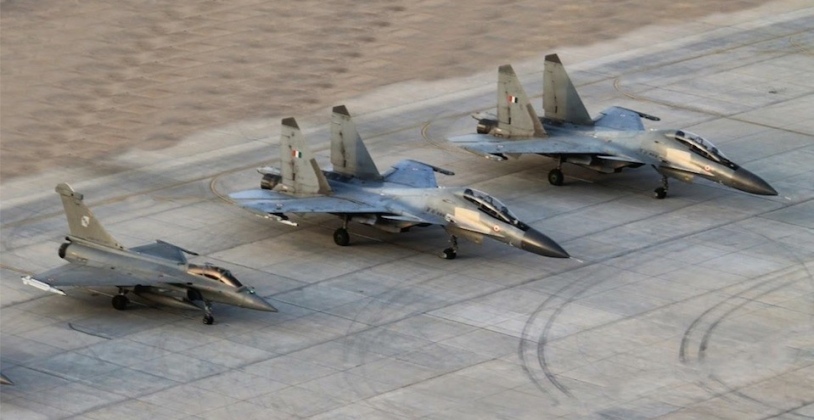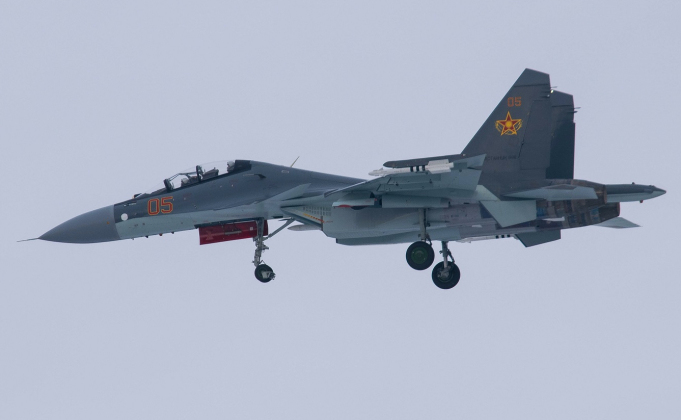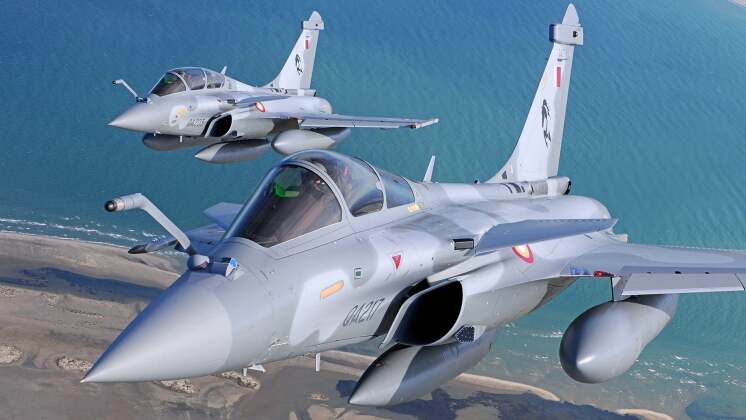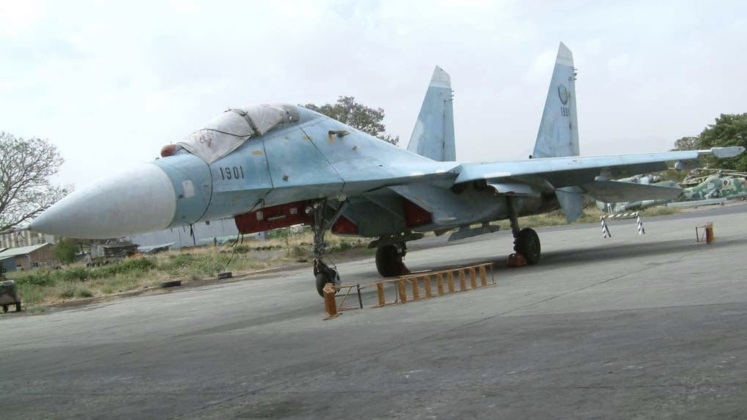News
Why Ethiopia Just Joined Algeria and Kazakhstan Rejecting French Rafale Fighters to Buy Russian Su-30SMs
On January 16 Ethiopia was confirmed to have become the fifteenth country to operate the Russian Su-30 twin seat heavyweight fighter, with the state-owned Ethiopian Broadcasting Corporation reporting an undisclosed number of the aircraft had been received. A least two of the aircraft are currently in the country. It has long been speculated what class of fighter Ethiopia would acquire to replace its ageing MiG-23 fighters acquired in the 1980s, and potentially even some of its Su-27s which were acquired in the late 1990s and are also likely to be in their last decade in service. The country was confirmed as a client for the Chinese L-15 lightweight fighter in early 2022, indicating that these lighter aircraft will replace the MiG-23s while the Su-30s replace the Su-27s as part of a high-low combination. Although the variant of the Su-30 acquired remains uncertain, it is likely to be either the Su-30SM or the Su-30SM2, the latter which is an enhanced variant with AL-41F-1S engines from the Su-35 fighters which have reduced maintenance needs and improve the fighter’s range and flight performance. The fighters are rivalled only by the Algerian Air Force’s latest batch of Su-30MKAs delivered in 2020 for the title of the most capable on the African continent – a position Ethiopia previously achieved three decades ago when it first acquired Su-27s from Russia.

Ethiopia was previously considered a leading client for the French Rafale fighter, and following multiple failed bids in African states including Morocco, Algeria and Libya Paris was reported by local media to be aggressively marketing the fighters to Addis Ababa. Ethiopia’s choice of the Su-30 over the Rafale notably follows a similar decision announced on November 30, 2023, by the Kazakh Defence Ministry, which chose the Su-30SM. At the time Deputy Commander in Chief of the Air Defence and head of the main armaments department Yerzhan Nildibayev stated that that the Su-30 had a better “quality-price” ratio compared to the French aircraft. The only other countries known to have considered the Rafale and the Su-30 as competitors for acquisitions, namely Algeria and Libya, both also selected the Su-30, although the latter came under joint attack by multiple NATO members and its government was overthrown before the acquisition was finalised. The Indian Air Force meanwhile, although acquiring 36 Rafales, has not placed followup orders and has continued to expand its Su-30 fleet past 270 fighters. The Su-30SM acquired by Ethiopia and Kazakhstan is closely related to the Su-30MKA acquired by Algeria and the Su-30MKI acquired by India, with all three produced at the Irkutsk Aviation Plant and considered the most capable variants of the aircraft.

The Rafale’s primary advantages over the Su-30 include its lower maintenance needs as a much lighter aircraft, with its M88 engines being the weakest in production for any fighter class in the world and accordingly needing relatively little work. Newer variants of the Rafale also benefit from sensors and electronics considered more sophisticated than those of the Su-30, which does not integrate the latest Russian avionics systems seen on the new Su-57 fighters. The Su-30 is otherwise considered superior in almost all aspects of its performance, with close to double the endurance, a radar over twice as large providing far superior situational awareness and a 400km detection range, and a far higher altitude ceiling, speed and manoeuvrability. Su-30s built at Irkutsk also benefit from thrust vectoring engines which provides low speed manoeuvrability unmatched by any Western fighter. The aircraft’s air-to-air engagement range of over 300km using R-37M missiles is also far longer than that of any Western fighter class.

Russia’s ability to deliver Su-30s far more quickly than France can deliver Rafales, often within a year of contract signing, and the significant commonalities with the Su-27s already fielded which will reduce training requirements, are thought to be other important factors which may have influenced Ethiopia to favour of the Su-30 at a time when new fighters are urgently needed. The fact that the Su-30 has seen far more intensive combat testing at all intensities, where Rafale operations have been limited to a small number of low intensity beyond visual range strikes against minimally defended ground targets, has been another factor in the Russian fighter’s favour. With France having a long history of providing sensitive specifications of its fighters to the adversaries of its defence clients, as seen during the Gulf War and in the Falklands War to allow fellow NATO members to better counter Iraqi and Argentine Mirage fighters, Russia has also come to be seen as a much more reliable partner.

Ethiopia began operating Soviet fighters from the 1980s, and following the separation of Eritrea from the country in 1993, and acquisitions of Russian MiG-29s by the newly formed Eritrean Air Force, Ethiopia quickly placed orders for Su-27SK fighters and their twin seat derivatives the Su-27UBK. Engagements in the Ethiopian-Eritrean War of 1998-2000 saw Su-27s demonstrate their comfortable superiority, shooting down four MiG-29s for no losses, with this leading Eritrea to then acquire two Su-27s for its own fleet after the war. With Ethiopia having fallen into a state of civil war from late 2020, and facing territorial disputes with Sudan, ongoing tensions with Eritrea, and threats from neighbouring Egypt over rights to Nile River water, the acquisition of Su-30s is expected to revolutionise the country’s ability to counter threats from any of these actors. The Su-30 provides the Ethiopian Air Force with decisive superiority over Eritrean Su-27S and Sudanese MiG-29SME fighters. France’s refusal to supply Egypt with Meteor air to air missiles for its Rafale fighters also ensures an overwhelming advantage for Ethiopian Air Force Su-30s in the event of a possible clash, has does Cairo’s succumbing to Western pressure to cancel its 2018 order for more capable Su-35 fighters. The Su-30SM also introduce precision strike capabilities which could significantly improve the Ethiopian Air Force’s ability to provide air support against insurgents in the country’s Tigray regions.












